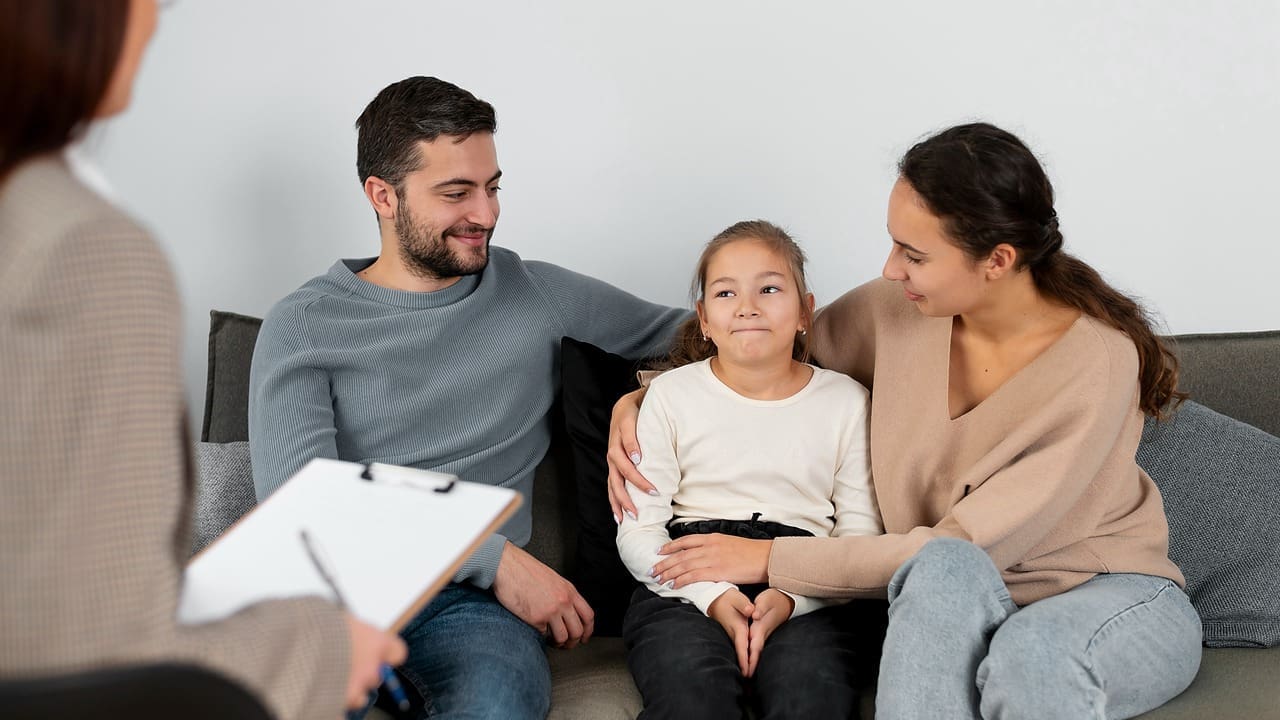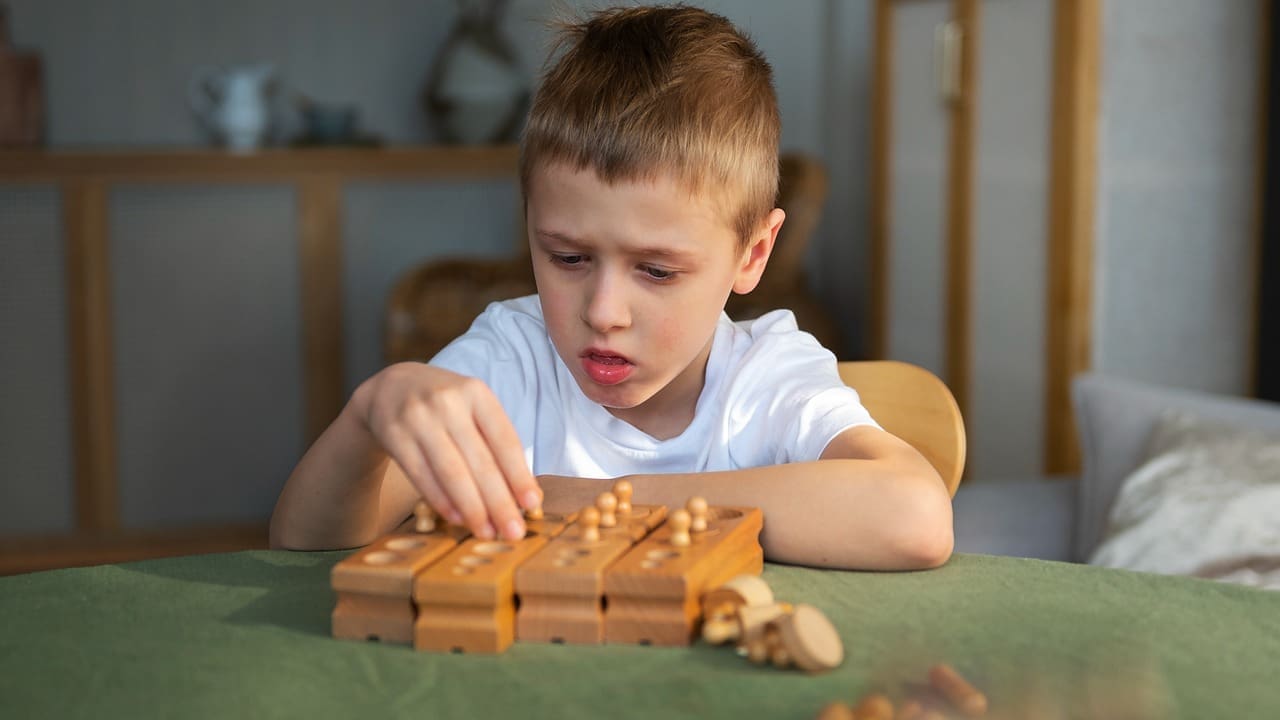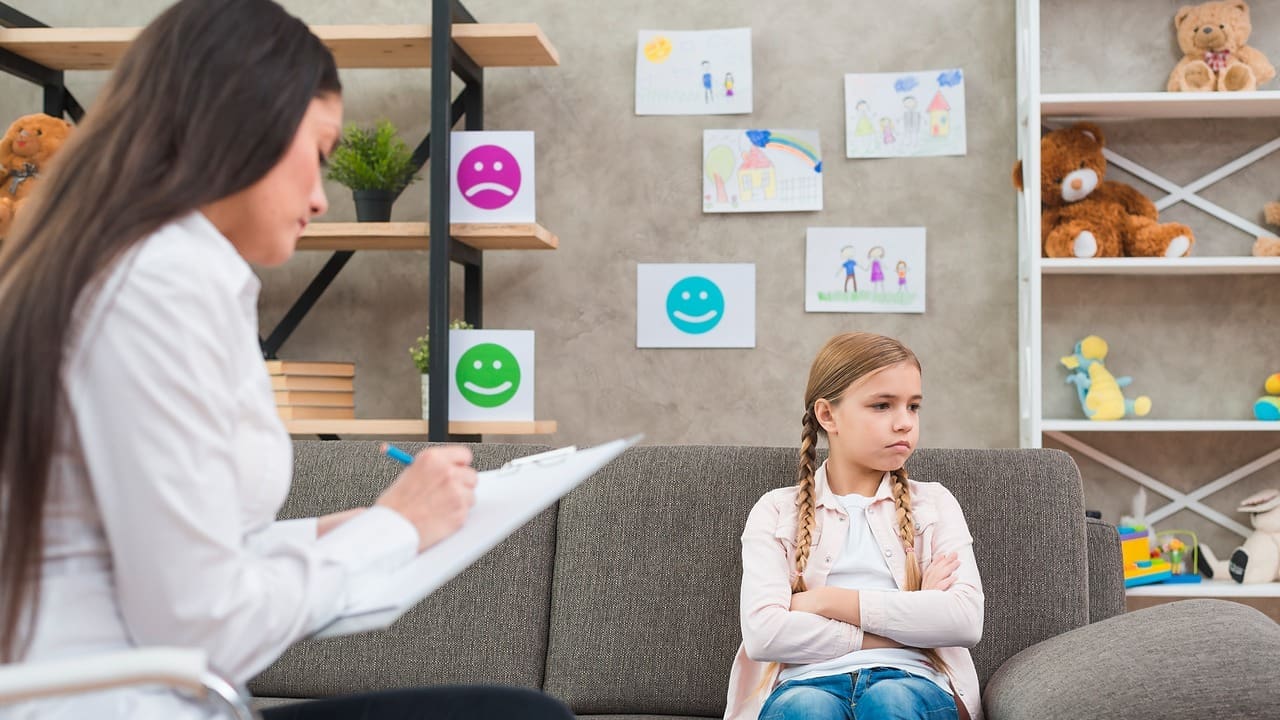Understanding Pediatric and Adolescent Psychiatry: A Comprehensive Guide
Pediatric and adolescent psychiatry is a branch of medicine that helps diagnose and treat mental health issues in children and teens. Because young people often show different symptoms than adults, they need care that fits their age and needs. Learning about this field can help parents and guardians find the right support for their children.
Mental health problems in young people can include anxiety, depression, bipolar disorder, and schizophrenia. Pediatric psychiatrists know how to spot these issues and offer the right help. They aim to treat symptoms and also support the child’s growth and well being.

What to Expect from Pediatric and Adolescent Psychiatry Services ?
This evaluation may include:
- Clinical Interviews: The psychiatrist will conduct interviews with the child and their parents or guardians to gather information about the child’s behavior, emotions, and social interactions.
- Behavioral Assessments: Standardized assessment tools may be used to evaluate the child’s mental health status and identify specific issues.
- Observation: The psychiatrist may observe the child in different settings, such as at home or school, to gain a better understanding of their behavior.
After the evaluation, the psychiatrist creates a treatment plan that fits the child’s needs. This plan might include therapy, medication, or both.
Which Diseases does Pediatric and Adolescent Psychiatry Treat ?
Pediatric and adolescent psychiatry is a medical branch specializing in recognizing, evaluating and treating various mental health problems that may occur among children and adolescents. Specialists working in this field diagnose and treat various diseases, focusing on the emotional, behavioral and mental health of young people. Here are some diseases that pediatric and adolescent psychiatry usually deals with:
Depression: To evaluate and treat the symptoms of depression in children and adolescents.
Anxiety Disorders:
- General anxiety disorder
- Social anxiety disorder
- Separation anxiety
- Panic disorder
- Obsessive compulsive disorder (OCD)
Attention Deficit Hyperactivity Disorder (ADHD):
- Attention deficit
- Hyperactivity
- Impulsivity
Autism Spectrum Disorders:
- Autism
- Asperger’s syndrome
- Other autism spectrum disorders
- Tic Disorders
- Tourette syndrome
- Other emotional and physical tics

Eating Disorders:
- Anorexia nervosa
- Bulimia nervosa
- Binging disorder
Behavioral Disorders:
- Intermittent explosive disorder
- Oppositional defiant disorder
Emotional and behavioral disorders
Stress-Related Disorders:
- Post traumatic stress disorder (PTSD)
- Other stress related disorders
Psychotic Disorders:
- Schizophrenia
- Schizophreniform disorder
Learning Disorders:
- Dyslexia
- Dyspraxia
- Dyscalculia
Addiction and Substance Abuse:
- Alcohol and substance abuse
Gaming Addiction and Technology Abuse:
- Internet addiction
- Addiction to computer games
The Importance of Early Intervention in Pediatric Mental Health
Getting help early for mental health concerns is very important. Studies show that children who get support sooner often do better in the long run. Early treatment can stop problems from getting worse and lower the chance of more serious issues later.
Parents should be vigilant for signs that their child may need help, such as:
- Changes in behavior or mood
- Withdrawal from friends and activities
- Declining academic performance
- Changes in sleeping or eating patterns
If any of these signs are present, seeking an evaluation from a pediatric psychiatrist can be an important step in supporting the child’If you notice any of these signs, reaching out to a pediatric psychiatrist can be a helpful way to support your child’s mental health.d but also recognizes the importance of family involvement in the treatment process. Family dynamics can significantly influence a child’s mental health, and involving parents and siblings in therapy can enhance the effectiveness of treatment.
Family therapy sessions may address:
- Communication patterns within the family
- Coping strategies for managing the child’s condition
- Support for siblings who may be affected by the child’s mental health issues
When families are supportive, children and teens often feel safer and better understood. This support is important for their recovery.
Navigating the Path to Pediatric and Adolescent Psychiatric Care

Finding the right pediatric psychiatrist can be a daunting task for pareFinding a pediatric psychiatrist can feel overwhelming for parents. Here are some steps that can make the process easier: child’s pediatrician, who can provide referrals to qualified pediatric psychiatrists.
- Research Providers: Look for psychiatrists who specialize in pediatric and adolescent mental health. Check their credentials, experience, and treatment approaches.
- Schedule a Consultation: Arrange an initial appointment to meet the psychiatrist and discuss your child’s needs. This meeting can help you assess whether the psychiatrist is a good fit for your family.
- Ask Questions: Don’t hesitate to ask questions about the psychiatrist’s experience, treatment methods, and how they involve families in the process.
- Follow Up: After the initial consultation, maintain open communication with the psychiatrist to monitor your child’s progress and make any necessary adjustments to the treatment plan.
Liv Hospital Pediatric and Adolescent Psychiatry Clinic
An interdisciplinary team consisting of a pediatric and adolescent psychiatry specialist, a clinical psychologist specializing in child and adolescent psychology, a child development specialist and a speech therapist works at the Liv Hospital Pediatric and Adolescent Psychiatry Clinic. With teamwork, each child or teenager is monitored within a specially arranged treatment protocol for themselves.
Tests Performed at the Pediatric and Adolescent Psychiatry Clinic
- WISC-R Intelligence Test for ages 6-16
- Rorschach Personality Test for children and adolescents
- CAT (Children’s Apperception Test)
- TAT (Thematic Apperception Test)
- Louisa Duss (Psychoanalytic Stories Test)
- Draw a Person / Family / Tree Test and D10 Test (Projective evaluation of children’s drawings)
- MMPI (Minnesota Multiphasic Personality Inventory)
- Bender Gestalt Visual Motor Detection Test
- Ankara Development Inventory, etc.
The Role of Pediatric Psychiatrists in Child and Adolescent Mental Health

Pediatric psychiatrists are important in helping children and teens with mental health needs. Their training helps them understand the challenges young people face. With the right diagnosis and treatment, they can guide children through their mental health struggles.
Pediatric psychiatrists also work with other professionals like psychologists, social workers, and teachers to give children complete support. This teamwork helps address the many factors that can affect a child’s mental health.
For more information about our academic and training initiatives, visit Liv Hospital Academy.
Frequently Asked Questions for Pediatric and Adolescent Psychiatry
How can I support my child’s mental health at home?
Supporting your child’s mental health involves fostering open communication, encouraging healthy routines (such as regular sleep and exercise), providing a stable and nurturing environment, and being attentive to their emotional needs. If you notice concerning behaviors, don’t hesitate to seek professional help.
What is new in pediatric psychiatry?
Recent advancements in pediatric psychiatry include increased focus on early intervention, the integration of technology in treatment (such as telepsychiatry), and a growing understanding of the impact of social factors on mental health. These developments aim to improve access to care and enhance treatment outcomes for children and adolescents.
Can a pediatric nurse practitioner provide psychiatric care?
Yes, pediatric nurse practitioners can provide certain psychiatric services, including therapy and medication management, under the supervision of a licensed psychiatrist. They play a vital role in supporting children’s mental health needs, particularly in collaborative care settings.
How important is family involvement in pediatric psychiatric treatment?
Family involvement is crucial in pediatric psychiatric care. Engaging family members in the treatment process can enhance communication, provide support for the child, and help address any family dynamics that may impact the child’s mental health.
What can I expect during my child’s first visit to a pediatric psychiatrist?
During the initial visit, the pediatric psychiatrist will conduct a thorough evaluation, which may include interviews with the child and their parents, behavioral assessments, and observations. This process helps the psychiatrist understand the child’s mental health needs and develop an appropriate treatment plan.
How can I tell if my child needs to see a pediatric psychiatrist?
Signs that your child may benefit from seeing a pediatric psychiatrist include persistent changes in mood or behavior, withdrawal from friends and activities, difficulties in school, changes in eating or sleeping patterns, and excessive worry or fear. If these issues interfere with daily functioning, it may be time to seek help.
What types of conditions do pediatric psychiatrists treat?
Pediatric psychiatrists address a variety of mental health issues, including anxiety disorders, depression, attention-deficit/hyperactivity disorder (ADHD), autism spectrum disorders, and mood disorders. They work to develop comprehensive treatment plans that may include therapy, medication, and family support.
What is pediatric psychiatry?
Pediatric psychiatry is a specialized field of medicine that focuses on diagnosing and treating mental health disorders in children and adolescents. It involves understanding the unique psychological and emotional needs of young individuals and providing tailored therapeutic interventions.




